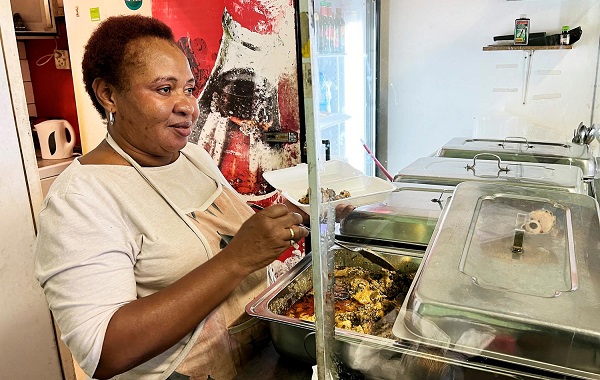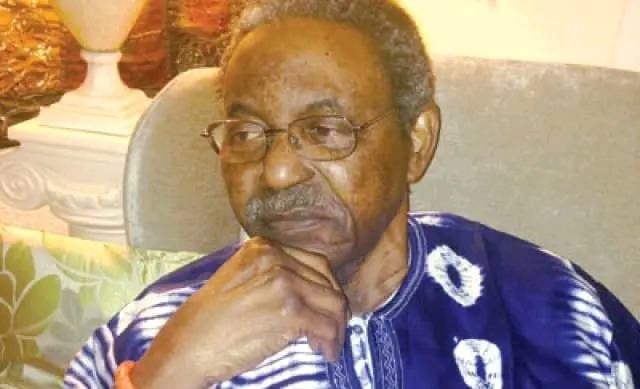Abibat Lamidi buys catfish caught in the Black River to make a traditional pepper stew for her Nigerian customers. She says the fish from the river smell like petrol, but the strong spices that the dish calls for helps to disguise it. Photo by Peter Luhanga
BY CHRIS OGUGUO
When my friend George was buying his second car, he was excited but wary at the same time: the first car had given him serious problems and had almost rendered him bankrupt. By the eighth month of driving that car, he had spent almost the N3,000,000 he acquired the vehicle for, and still no respite in sight. However, what followed with the purchase of his second car is a lesson that even the most successful of businesses can learn from.
The first car was a Toyota Camry (AKA ‘Muscle’) and had been a car he had admired for quite a while, so you can imagine how excited he was to get one for himself. A huge Chelsea fan, his excitement went through the roof when he realized there was one that had the ‘Chelsea Blue’ colour.
“Chris, I can’t wait to paint this town blue,” he said to me excitedly on the phone.
Sure enough, I was also happy for him. He had painstakingly saved for this purpose and if not that I was out of town, I would have accompanied him to the car dealer’s.
However, one day, just four months later, he heard a funny sound coming from the engine area, a kr-kr-kr-kr sound that initially lasted about three seconds. He was driving home from work. A few moments later, the sound returned, this time slightly louder, but lasted maybe another three seconds. At this point, he was almost home, then the sound returned, louder, and then silence…the engine had gone off! He was only about 1km from home.
Advertisement
He tried restarting the engine, but no joy. He quickly called his mechanic. When the mechanic arrived, he tried to restart the engine, but immediately came to a shocking conclusion: “Bros, your engine don knock,” he told George.
A devastated George couldn’t believe what he’d just been told. “Engine knock, how?” he asked, confused and worried. Long story short, he had to cough up ₦450,000 to buy a new engine. Before then, however, he had reached out to the car dealer who sold him the car to see if there was any guarantee on it (yes, he didn’t ask when he bought the car and the dealer didn’t offer) but the dealer said they typically offered a one-week ‘guarantee’, and since he didn’t notice any faults within that first week, then they had no liability.
For the months that followed, George never had peace with that car: if it was not a gearbox problem today, it would be his air-conditioning not working properly.
That experience left George with the impression that the Toyota Camry car was problematic and swore never to go close to it again.
Advertisement
Eventually, he would sell it off for ₦2,000,000. The next month, he was ready to buy another one but this time, he said he was going for the Uber Corolla. “Ah, oga, this car (Corolla) no good for you o. E no reach your level and when you dey drive, people go dey think say you be Uber,” the car dealer (a different man from the first) had told George.
“Buy this ‘Muscle’, 2010 model, e go fit you well well I swear,” the dealer had said further. George had given him a very stern look after he said that: “No be me and ‘Muscle’ again,” George retorted.
“Ah, wetin ‘Muscle’ do you, oga? This car no dey disappoint o. You fit drive am for five years, no wahala,” the dealer responded.
It was at this point that George explained to him the challenge he had faced with the Camry he had, and why he was not interested in another one.
“Bros, we get guarantee o,” the dealer said, as if to convince George. “One week guarantee abi? Abeg I no want,” George replied in a sarcastic tone. “Nooo, we dey give 6 months guarantee for here o, for all our cars,” the dealer said back, quite adamant. His claim of a six-month guarantee got me interested, so I asked him to explain a bit more.
“We dey give six months guarantee for all our cars. If anything major spoil within six months, bring am come back and we go repair am for you. But we no dey collect accident o,” he said, adding that the guarantee covers any major faults but accidents.
Advertisement
He went further: “We dey even offer free servicing for the six months and we go give you oil and filter for free too”. Okay, this was sounding too good to be true, but he said he was willing to put it in writing if that would convince us. Wow! At this point, I advised George to take them up on the offer but he was concerned for two main reasons: the first being that he had sworn never to buy a Camry again and secondly, this particular dealer was selling for ₦250,000 more than the other sellers we had previously checked out.
But the offer seemed a no-brainer to me even if it was 250k more expensive than the average price. This is because a six-month guarantee that covers any significant repairs and oil changes was a better deal than a car that was 250k cheaper but offered no guarantees at all.
After some back and forth, George reluctantly agreed and a deal was done.
While there were no significant repairs required within the first six months, the dealer kept to his promise of offering free monthly oil changes, free engine oil, and oil filters for the six months.
So, what’s the lesson here for small business owners?
Advertisement
The lesson is in making irresistible offers to your clients, customers, or prospects. Your unique problem-solution mechanism (UPSM) shouldn’t just be that you’re the first in your industry or that you have the best product/services in the industry.
Anybody can claim to have the best product/services and being the first in the industry doesn’t necessarily offer a UPSM.
My friend was willing to pay N250,000 more for a car he had previously sworn never to touch again because someone made him an irresistible offer; an offer that spoke to the core of his fear, an offer that had a unique solution to his problem.
And the reason that offer was unique and irresistible wasn’t because that dealer would be the first to ever offer similar terms, but because none of his competitors were willing to offer that.
Advertisement
So, as a small business owner, you must ask yourself what your UPSM is. What is it that you can offer that your competitors can’t or won’t? Your product/service in itself isn’t unique because you’re not the only one offering such, but you can carve an irresistible offer that none of your competitors are offering.
Remember, your product/service is not your offer!
Advertisement
Oguguo can be reached on Twitter @chrisoguguo10 or via email: [email protected]
Advertisement
Views expressed by contributors are strictly personal and not of TheCable.





